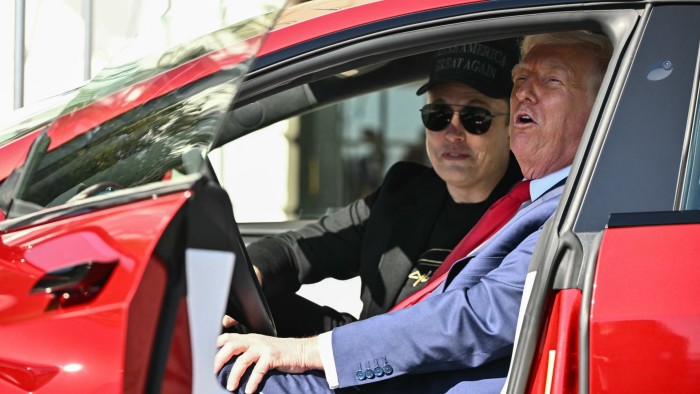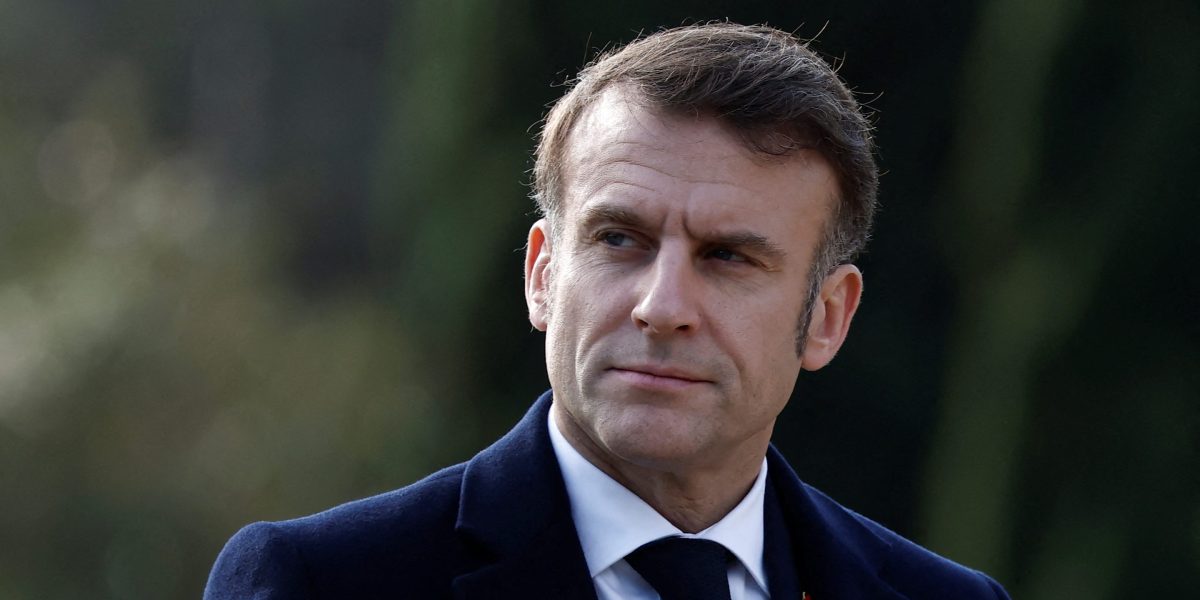Unlock the Editor’s Digest for free
Roula Khalaf, Editor of the FT, selects her favourite stories in this weekly newsletter.
Elon Musk said he would spend “significantly” less time as a key adviser to President Donald Trump from next month and refocus his attention on Tesla, after the car company’s profits cratered in the past three months.
“Starting next month, [I will devote] far more of my time to Tesla,” Musk told investors on Tuesday. “The large slug of work necessary to get the [Department of Government Efficiency] team in place and working in the government to get the financial house in order is mostly done.”
The billionaire chief executive emphasised that he would not be leaving the US government completely, and that he would probably remain Doge’s figurehead until the end of the president’s term, “to make sure that the waste and fraud that we stop does not come roaring back”.
Tesla shares rose as much as 7.8 per cent in after-market trading as Musk was speaking, before hovering at about 4 per cent.
Musk’s statement came after Tesla reported its lowest quarterly profits since the end of 2020, and dropped its forecast for a rebound in electric vehicle sales this year.
Sales have fallen as Musk’s political interventions have hurt Tesla in major markets, while it has warned that US tariffs will disrupt its supply chain.
Musk has come under investor pressure to address his absence from Tesla as well as the perceived brand damage from his close relationship with Trump and his controversial role as head of Doge.
Adjusted net income for the first quarter missed analyst expectations, falling 39 per cent from a year earlier to $934mn, according to a filing from the Austin, Texas-based company on Tuesday. Reported net income dropped 71 per cent to $409mn.
The results marked the lowest profits Tesla has reported since the fourth-quarter of 2020.
Musk said tariffs “are still tough on a company where margins are still low”.
Tesla assembles all of its vehicles sold in the US locally but it is still exposed to the sweeping tariffs and disruptions to the global automotive supply chain since it sources components from other markets including battery cells from China.
In its earnings filing, the company warned that Trump’s trade policy “could have a meaningful impact” on demand for its products. It added that the there would be a larger tariff fallout on its energy storage business, which relies on battery cells from China.
Due to the uncertainty caused by Trump’s trade policies, Tesla said its rate of growth this year would depend on multiple factors including the pace of its rollout of autonomous vehicles. In the previous quarter, it had forecast that its vehicle business would return to growth in 2025.
Tesla is banking on a revival in vehicle demand following the recent upgrade to its flagship Model Y car. The company also said plans to start production of more affordable models by June remains on track.
Revenue fell 9 per cent to $19.3bn, missing the average $21.4bn analyst estimate, according to S&P Capital IQ.
Earlier this month, Tesla reported that its deliveries fell 13 per cent in the first three months of this year, compared with a year before, marking its worst quarter since 2022. It also lost its crown as the world’s largest electric-vehicle maker to Chinese rival BYD.

In recent weeks, Tesla has spoken out against Trump’s trade war, which it has warned could make it a target for retaliatory tariffs and increase the cost of making vehicles in America.
Musk has also clashed with Peter Navarro, the architect of Trump’s trade policies, and the White House has said his government role, which was originally meant to continue into 2026, could end well before that once his work with Doge is complete.
Tesla’s first-quarter operating margin also fell to 2.1 per cent from 5.5 per cent a year earlier.




